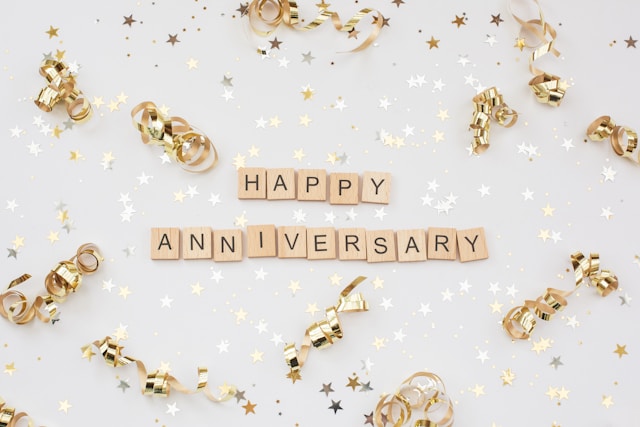I’ve written about the value of a support group in the past, but I want to examine the benefits of connection when you go beyond attending a support group. For me, being able to share my struggles, concerns, triumphs, and gripes with a group was helpful. However, connecting with a few people from that circle was a bonus I didn’t anticipate; it beat healing in isolation.
The relationships I’ve built within the support groups have been an important part of my healing for years; it’s the bonus that keeps giving. Our bond is one of love, strength, and support. We’ve all experienced the ups and downs of the healing journey. Each of us knows the gory details of what led us to seek a support group. However, we don’t judge each other or provide unsolicited advice. We relate to each other, and it’s that bond that has allowed our friendship to strengthen over the years beyond our initial desire to receive the benefits of attending a support group.
Let’s face it, most of our friends can’t relate to betrayal trauma as it relates to sex addiction. When it comes to discussing how our partner’s sex addiction has impacted our lives, there are few people we can talk to who get it. Sex addiction, unlike some other addictions, is still not understood in society. I, like most people, only learned about sex addiction out of necessity. Sex addiction isn’t like other addictions that are accepted and discussed more freely. In my opinion, those impacted by sex addiction need to know there is at least one other person in their life who understands what they are going through. There needs to be at least one person a betrayed partner can call and talk to when needed that can be trusted.
Some people reading this may say they talk to their therapist about how sex addiction has impacted them, as much as I loved my therapist (and still do), I still needed to connect with someone who had personally experienced the harms of sex addiction. My therapist has counseled hundreds of sex addicts, partners of sex addicts, and couples healing from the impact of sex addiction; she hasn’t experienced the harms of sex addiction personally. For me, I needed to connect with someone in addition to my therapist who had experienced betrayal trauma caused by the sex addiction of another.
When you think about why some partners of sex addicts isolate, it’s usually because they feel shame, they don’t want to be told what to do, or they figure no one in their social circles could relate to what they are experiencing. It’s for these reasons and many others that connecting with someone who gets it is so critical to partners healing from betrayal trauma. Healing in isolation is not the best way to maneuver betrayal trauma. It’s much more beneficial to have at least one other person to bounce ideas off of, get a second opinion about something you may be struggling with, or listen to someone who understands the pain you are experiencing. Your girlfriends can only do so much for you if they haven’t been in your shoes.
Having a deeper connection with someone that goes beyond the limited time that is usually provided for sharing in support groups can be very nice. I can still remember the first time I shared my complete story with someone from a support group and how freeing it felt afterwards. I was a little apprehensive at first, but I didn’t feel judged; instead, I felt heard. I shared information with this person in a way I couldn’t have in a meeting. I trusted this person and knew she wouldn’t share the information with other people from the support group.
Over time, I was able to connect with a few other people from the support groups I attended, allowing me to get to know them better in a more intimate setting. Many of us feel alone in the beginning, not knowing who to talk to or who will listen to us without responding with judgmental advice. We may still be interacting with our friends, but now there is this piece of information we don’t feel safe sharing with them, but we desire to connect with someone regarding the challenges of betrayal trauma healing.
There are so many ways to find a support group these days, whether it’s getting involved with a group affiliated with a national group’s chapters, groups through your therapist, faith-based groups, or online groups. Whichever you choose, please let me encourage you to take that group support meeting a little further by reaching out to at least one person you can get to know better through a video call or connecting in person. If you’re fortunate, you’ll end up with a core of your own you can connect with and enjoy each other’s time together. For me, this was very therapeutic knowing someone else knew my story and was there for me.
Connecting with someone or a few people from your healing circles doesn’t have to be doom and gloom. I’ve enjoyed hanging out with my core, girl weekends together or just saying “hello’ on the phone. We also celebrated our wins, such as handling a situation better than we previously did, creating a boundary we stuck to, or experiencing an “a-ha” moment we wanted to share. Additionally, we have been there for each other through divorces, challenges with our children, or disappointments. Our connection has grown beyond the pain that brought us together.
Some of you may be reading this and thinking, I don’t want to connect with anyone individually. I’m a private person; It’s a leap of faith for me to attend a meeting. I understand connecting with someone intimately regarding your betrayal trauma healing journey might be scary. It’s much easier to protect yourself by sharing the bare minimum at meetings without any intention of connecting with others. However, I believe you deserve the full benefits of participating in support groups, which include the opportunity for a deeper connection with at least one other person on the same journey.
I used to be one of the first people out the door when I attended in-person meetings, but once I started staying a few minutes after a meeting to connect with people, I felt better. Eventually, I started making phone calls to a few people. The benefit of the connection far outweighed the risk it took to pursue it. I realized I needed a deeper connection more than I thought I did. Betrayal trauma healing is difficult enough; don’t you deserve something that can ease the journey? You aren’t connecting with a “nosey neighbor”. Trust yourself to know who you might want to connect with individually and eventually share more of your story with when you feel comfortable. Besides, this person wouldn’t want you to share their intimate information with others either. The connection would be mutually beneficial.
I’ve been privileged to share my healing process with my core group, as well as my job, children, other family members, and anything that was pressing to me at the time. Sometimes you need someone to call when you’re upset, triggered, or desire non-judgmental ears – not a group response or a therapy session. I’ve watched my core group of friends evolve in their healing process, whether it was divorce or staying with their partner. I can say we are all in a better place emotionally and mentally than when we first met, and I feel privileged and honored that they shared their journeys with me. When I ponder where we were in the beginning and how our lives have changed for the better, I can’t help but smile. Most importantly, I know they will always be there for me.
Please let me encourage you to pursue a connection with at least one other person who gets it. I’ve focused on support groups because they are one of the easiest places to look for someone who is going through what you’re going through, but that’s not to say there aren’t other avenues. Regardless of which avenue you choose, let me assure you that having one other person in your life you can confide in who is on the same journey is worth the effort. I have found my core group of about five other women to be one of the best benefits of my healing journey.




